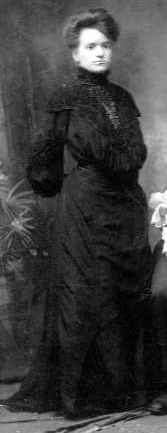In many cultures across the world, our ancestors did the actual OPPOSITE of what much of the Western World does this time of year. Instead of trying to do more than ever, at this time of year actually slowed down, spent more time inside and connected more with themselves, spent more time in “dream space” and told stories about their ancestors.
I’ve noticed that lately I’ve been returning to doing more research and wanting to learn stories about my family as I spend less time outdoors and more time with my family between holidays and birthday parties. I’ve also been able to share more about my findings with my family. There’s this sense of commonality and give and take in this arena. And there’s something about these stories and these new findings that actually brings some LIGHT and WARMTH into my life.
You may have heard me say it before, but genealogy and family history is SO MUCH MORE than just names and dates. It’s something that I have found to resonate and live within us. Even just someone’s NAME can trigger something deep within you.
Maybe you’re curiosity during this time of year is piqued to learn more about this part of yourself.
But, if you don’t know where to start or you think all the stories of your ancestors are gone, think again. Here are some of the places and the ways you can learn more about your ancestry and your story:
(1) Ask your living relatives to share some of their story.
You may have heard me talk about this before, but this is such a powerful place to connect to family. What we all have in common is ancestry. You don’t have to go to anyone you don’t feel comfortable going to, but start with someone you know. If you can, try to go to the oldest generation first.
If you’re not sure where to start, grab a free copy of my CONNECTING CONVERSATIONS GUIDE. I know these conversations can feel weird to even start, so that’s why I created this for it. You’ll also receive some great tips on how to PRESERVE these stories for yourself and for future generations.
(2) Family member’s or ancestor’s autobiography.
Whether it was written or recorded, these stories are a incredible. You get to hear the voice of someone you may have never met, or someone you miss dearly. In my family, on all different sides of the family, as I went deeper into my genealogical research, family members happened to “remember” that an ancestor wrote a story or recorded their life’s story.
I have a copy of my great-grandfather’s autobiography, a “Cousins Club” newsletter that featured newspaper articles and 20 pages of a transcribed interview with a great-great Uncle. Some distant relatives of recordings of my great-grandparents and I have a few of my own late-grandparents.
(3) Do Some Research.
Maybe you’re like me and you love getting your hands dirty and finding your history on your own time! There are so many online resources out there like FamilySearch, Ancestry, Find My Past, DNA testing. But also local archives and historical societies that could greatly help you!
Plus, as you do your research, you can find new family members. I’ve learned so much more about my family simply because I’ve met “new” relatives.
Note: When it comes to uncovering a possible ancestor in your research, MAKE SURE YOU’RE NOT JUST FINDING SOMEONE WHO SEEMS TO HAVE YOUR ANCESTORS NAME! I can’t tell you how many family trees I see with incorrect information because it’s assumed this is the right person.
(4) Join or go to meetings of a local genealogical society
There have been stories where people have actually found distant relatives at genealogical society meetings. Not yet myself, but I do know several others who have! They’re also incredible resources for learning new tips on how to learn more about your family history.
Historical societies are amazing! First of all, not everything is online. Let me repeat this, not everything is online! Many local historical societies have documents and records that could be incredible clues and stories to your ancestral past. You may have deep roots in an area or a state, or perhaps your family immigrated to your current country within the last century, you’d be surprised that there are many museums and historical societies for most cultures and countries.
Do some research on what’s around!
(5) Hire a genealogist
Hiring a genealogist can be such an incredible investment to learn your family stories or family history. This doesn’t just stop with you, it can impact so many people in your family and for generations to come. Even when I’ve worked with other genealogists, it creates such a world of difference in my own research. Maybe you’ve hit a brick wall or you just want a partner to help you to extend the branches of a line in your tree. Maybe you want to do some deep research or someone on your line. Or perhaps you want to find a biological relative.
If this is something you’ve been thinking about doing or are curious about, please, DO get curious. You can go to the Association of Professional Genealogist website or you can reach out to me with ANY questions you may have. I have 3 spaces available starting January for any one who wants to Discover {Y}our Story. Please don’t hesitate to email me.
My wish for you is you take the time to learn about your ancestry and your own history.
There is such a powerful time to do this. If you have any questions about anything I shared about, please don’t hesitate to reach out to me.
In 2 weeks, after next week’s {Y}our Stories: The Series episode, I’ll share part of a story my great-great Uncle told about his family in a 1983 Cousins Club Newsletter. See you then!


